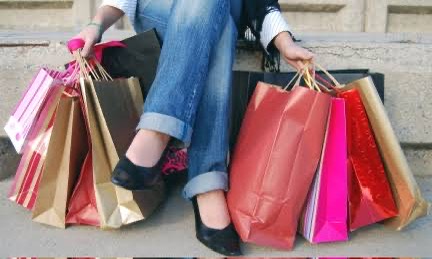Online shopping has evolved from convenience into emotional self-care in today’s fast-paced society, a practice known as “retail therapy.” This condition
Online shopping has evolved from convenience into emotional self-care in today’s fast-paced society, a practice known as “retail therapy.” This condition has a particularly negative impact on the younger generation because they frequently use online shopping to deal with feelings of loneliness or melancholy. This development raises concerns about how marketers are purposefully using these emotional states to boost sales and the effects of digital consumerism on mental health.
Rise in Retail Therapy
Online shopping has evolved from convenience into emotional self-care in today’s fast-paced society, a practice known as “retail therapy.” This condition has a particularly negative impact on the younger generation because they frequently use online shopping to deal with feelings of loneliness or melancholy. This development raises concerns about how marketers are purposefully using these emotional states to boost sales and the effects of digital consumerism on mental health. Shopping primarily to elevate one’s mood is known as retail therapy. Buying things gives many people a sense of control and satisfaction, whether it’s a new pair of shoes, a device, or something as basic as a scented candle. The instant satisfaction accompanying a purchase can temporarily dispel depressive or lonely sentiments.
The current generation is more influenced by social media and technology than any other, and they find comfort in online shopping. The convenience of online shopping, customised shopping experiences, and relevant ads make it simple for people to indulge in retail therapy while lounging in their homes. Excitation can spike with the touch of a button, and the prospect of a gift arriving enhances the whole experience.
Brands connect with Retail Therapy
Companies now keenly understand the feelings and impulses that motivate customers to purchase. With advanced algorithms and data analytics, businesses can forecast when an individual may be depressed or lonely. Social media networks and search engines, for instance, monitor user activity, preferences, and browsing history to customise adverts to a person’s emotional state at the time.
Emotional Focus
Brands use emotional targeting as a strategy to profit from precarious situations. This entails crafting advertisements that elicit strong feelings in the viewer, giving them a sense of comfort and understanding. For example, someone who regularly looks up stress-reduction methods online may begin to encounter advertisements for soothing teas, comfortable blankets, or self-care packages. By presenting products as answers to emotional demands, businesses gently persuade customers to buy things they think will lift their spirits.
Customised Suggestions
Brands also employ personalised recommendations as a strategy. E-commerce sites such as Amazon, eBay, and other fashion shops use algorithms to make product recommendations based on previous purchases and browsing activity. These suggestions foster a feeling of familiarity and trust, increasing the likelihood that customers may acquire goods they had not planned to.
Time-Limited Deals and Savings
Discounts and one-time deals are effective weapons in a brand’s toolbox. People may make rash purchases out of fear of missing out (FOMO), particularly when they’re depressed. Countdown timers, flash sales, and exclusive bargains that generate a sense of urgency incentivize customers to act quickly and make larger purchases.
Social Verification and Influencer Promotion
The use of influencer marketing in retail therapy is quite important. Social media influencers who frequently present an idealised lifestyle have the power to influence the purchases of their followers. When a self-care practice involves sharing a product, it establishes an impression that purchasing it can result in the same fulfillment and satisfaction. This tactic successfully appeals to followers’ emotions and persuades them to imitate the actions of influencers they find appealing.
The Effect on Psychology
Retail therapy can help people feel better momentarily, but there may be long-term repercussions that should be considered. Using buying as a coping strategy exclusively might result in debt, heightened anxiety, and even compulsive behaviour. Furthermore, the fleeting nature of the gratification from purchases frequently creates a cycle of constant buying to achieve long-term happiness.
Shopping: An Emotional Need
The digital era’s retail therapy phenomenon brings to light the intricate relationship between company strategies and customer behavior. It’s important to be aware of the underlying emotional triggers and the ways that businesses take advantage of these weaknesses, even though internet shopping can provide a temporary solution for depressive and lonely feelings. Consumers can explore better ways to fulfill their emotional needs and make more educated selections if they know businesses’ strategies to increase sales. In the end, while still enjoying the odd indulgence, striking a balance and engaging in conscious consumption might help reduce the possible harmful effects of retail therapy.
